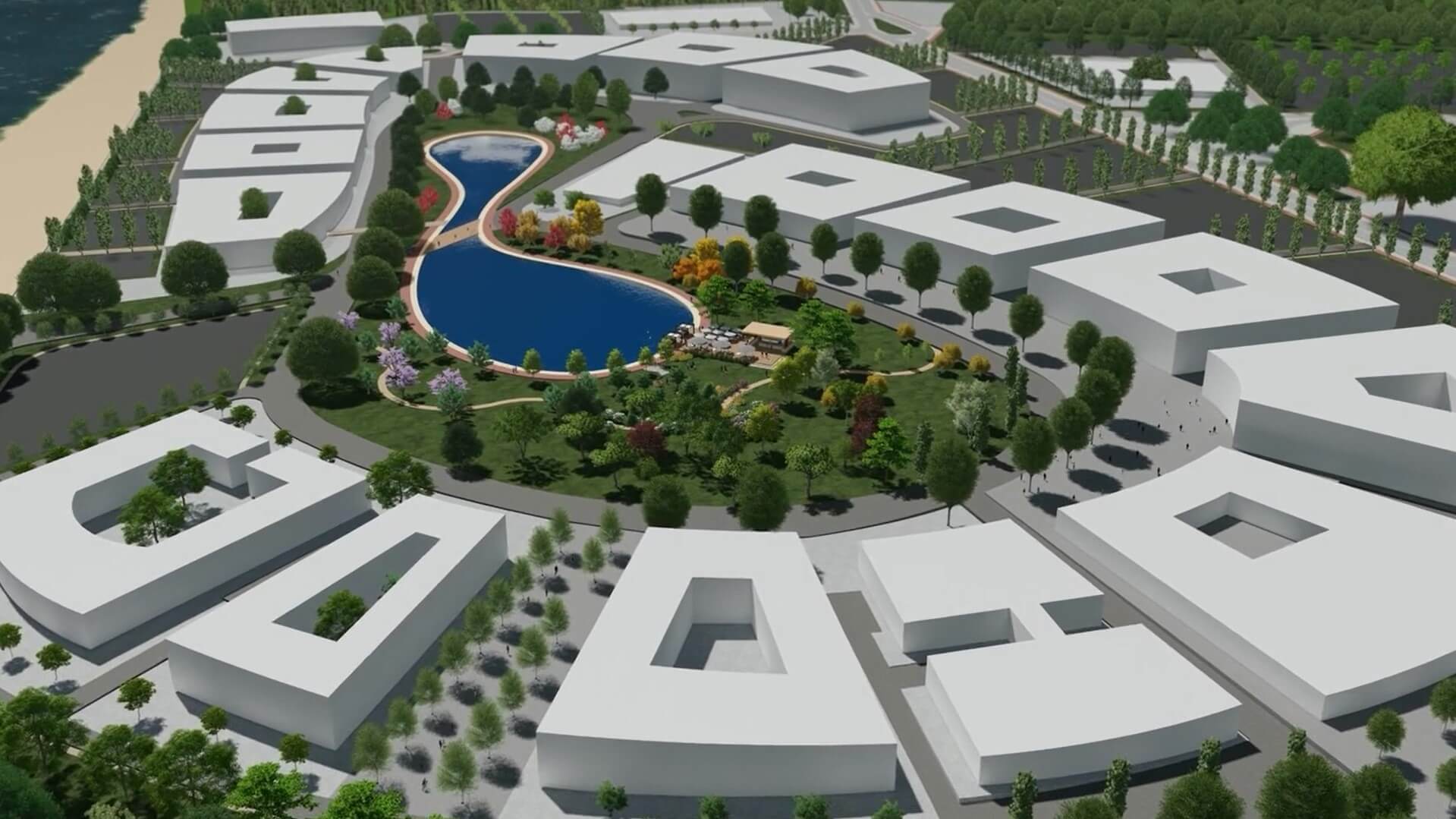The Thess-INTEC innovation and technology park is set to be developed on a 756,968.38 square meter site in Peraia, Municipality of Thermaikos. The park is designed to host large-scale projects focusing on innovation and technology across various sectors, including advanced materials, nanotechnology, artificial intelligence, clean energy, and future mobility. As part of this initiative, six major innovation projects will be developed, comprising 17 Research and Development units and numerous collaborating companies. Once fully operational, the park is expected to support approximately 7,043 users.
The project’s implementation is led by a consortium of stakeholders, including three universities, the ΕΚΕΤΑ Research Center, as well as public and private sector organizations. At the maturation stage, 25 prominent companies and sponsors support the project through a non-profit public-private partnership. Of the stakeholders, 58% are from the private sector, while 42% represent the public sector.
Notably, 40% of the park’s developable land has been allocated to the Israeli fund JLTV and the Beersheba Technology Park, which will bring valuable Israeli technological expertise. Additionally, the National Center for Research and Technological Development (ΕΤΕΚΑ) will develop its own infrastructure within the park.
The project includes flood protection works, essential earthworks to improve the soil, as well as studies aimed at stabilizing the site and ensuring its accessibility. The plan also involves demolishing 27 existing structures and preparing final infrastructure plans for water supply, sewage, firefighting, and telecommunications networks.
The intervention area is divided into three main zones, incorporating 14 building blocks: 10 in the Technology Park Zone, 2 in the Tourism and Recreation Zone, and 2 in the Public Green Space Zone:
Zone A (Technology Park) 480,000 sqm: This area will feature a "Technopolis – Technology Park" that supports the development of innovative technological and business activities.
Zone B (Tourism – Recreation) 32,900 sqm: This zone will be dedicated to tourism and recreational activities, including hotels, theme parks, and leisure spaces.
Zone C (Public Green Space): This zone will be designated as green space, extending along the northern coastal area of the park.
The area will have an average building coefficient of 0.45, with 25% of the total land set aside for public and community spaces. Notably, 90 hectares will be allocated for large-scale public use.
The park's development will occur in two phases:
Phase One: This phase involves completing urban planning and licensing processes, constructing essential infrastructure, and building the central administration facility. This phase will also house the park’s administration, the business incubator, and major innovation projects. A €50 million investment is planned for infrastructure and the initial buildings, with additional investments of €25 million from ΕΚΕΤΑ and €30 million from the Israeli fund.
Phase Two: This phase will include the operation of the first strategic tenants, with the allocation of building blocks for various business activities. Tourism and recreation-related activities will also be developed in this phase.
Over the next decade, total investments are expected to surpass €500 million.















